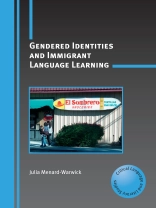Based on participant observation in a California English as a Second Language family literacy program, this ethnographic study examines how the complexly gendered life histories of immigrant adults shaped their participation in both the English language classroom and the education of their children, within the contemporary sociohistorical context of increasing Latin American immigration to the United States. Through outlining the connections between (gendered) identity work and language learning, this study builds theoretical and empirical justification for teachers to negotiate classroom practice with each community of learners, responding to students’ individual goals, histories, and lives outside the classroom.
Spis treści
Chapter One: The Social Context of Immigrant Language Learning
Chapter Two: Second Language Learning as Gendered Practice
Chapter Three: Gendered Narratives of Immigrant Language Learners
Chapter Four: The Sociohistorical Construction of Parental Involvement in Education
Chapter Five: Gendered Positioning in ESL Classroom Activities
Chapter Six: Changing Gender Ideologies in Local Communities
Chapter Seven: Gendered Identities and Language Learning: Continuing the Dialogue
References
Appendix A: Discourse transcription conventions
Appendix B: Focal participants’ demographics
Appendix C: Data collected on participants
O autorze
Julia Menard-Warwick has taught at University of California Davis since 2004. Her research explores power and identity in language learning and teaching. She began her career teaching English to university students in Nicaragua and adult immigrants in Washington State. More recently she conducted research with English teachers at a Chilean university; researched a study abroad program in Guatemala; and served as a visiting professor in Mexico. Recent articles appear in Applied Linguistics and The Modern Language Journal.












